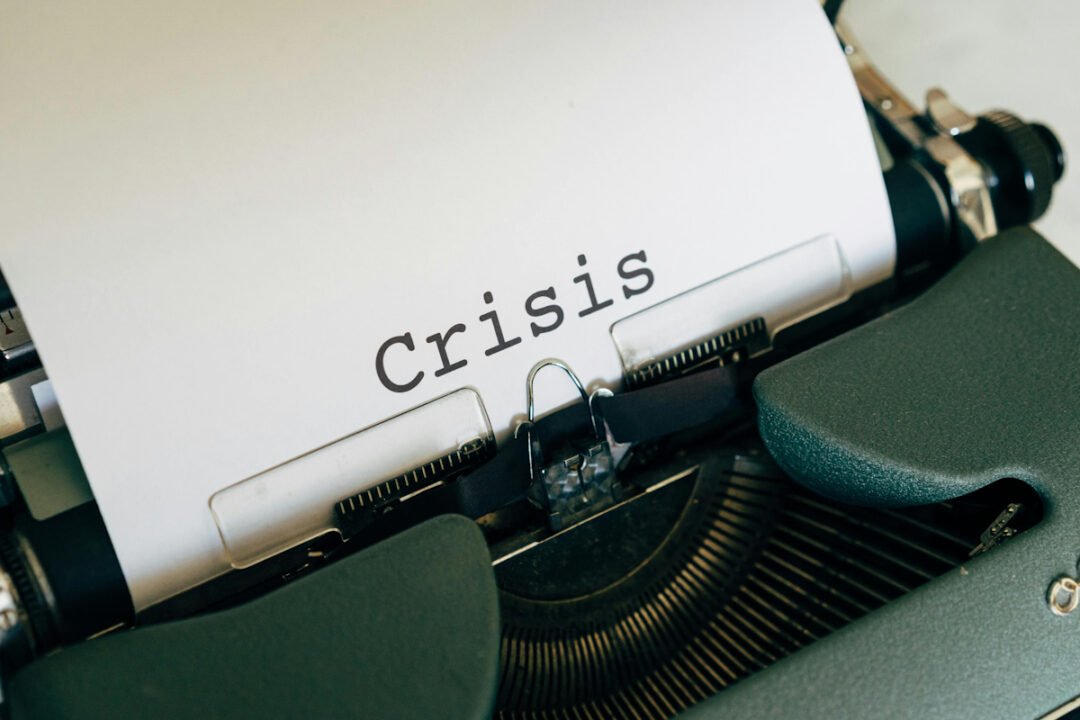Event planning can be a rollercoaster ride, full of unexpected twists and turns. From last-minute cancellations to sudden technical glitches, the potential for crises to arise is ever-present. That’s why having a solid crisis management plan in place is crucial. In this blog, we will explore the significance of crisis management in event planning and how it can make or break the success of any event. So strap in and get ready to delve into the world of event crisis management!
Crisis Management for Events: How to Stay Calm in the Storm

The Crucial Role of Crisis Management in Event Planning
Successful event planning requires effective crisis management to ensure the safety and success of any event. From unforeseen emergencies to logistical challenges, being prepared for crises is essential. Proper crisis management can help reduce potential risks, maintain the event’s reputation, and guarantee the well-being of attendees and staff. In this blog, we will explore the significance of crisis management in event planning and provide practical tips for managing unexpected situations.
Key Points on Crisis Management in Event Planning
Regarding event planning, crisis management should be a top priority. This blog will cover several essential aspects of crisis management in event planning. We will discuss the importance of creating a crisis management plan, conducting risk assessments, establishing effective communication channels, training staff for emergencies, and evaluating and learning from past experiences. By addressing these key points, event planners can be better equipped to handle any unforeseen circumstances that may arise during an event.
The Unpredictable Nature of Events
Events are inherently unpredictable, making crisis management essential to event planning. With the potential for unforeseen challenges and emergencies, it is crucial to be prepared. Hiring a professional event management agency ensures a well-trained and responsive event staff capable of handling crises. Effective communication plays a critical role in navigating these situations, minimising the impact and ensuring the safety and success of the event.
Inherent Uncertainty and Risks
Events, by their very nature, come with inherent uncertainty and potential risks. No matter how well-planned an event may be, variables can always cause unexpected outcomes or challenges. From weather conditions to technical difficulties, it is essential to acknowledge and address these uncertainties to ensure the success of an event.
Unforeseen Event Challenges
Even with meticulous planning, unforeseen challenges can arise during an event. These challenges can range from sudden changes in participant numbers to last-minute cancellations from critical speakers. It is crucial for event organisers to be adaptable and have contingency plans in place to effectively handle these unforeseen circumstances. By doing so, they can minimise the impact on the overall event experience.
Importance of Being Prepared:
Being prepared for unexpected situations is of utmost importance when organising an event. This preparedness involves researching and understanding potential risks, developing backup plans, and maintaining open lines of communication with all stakeholders. By taking proactive measures and having contingency strategies, event organisers can confidently navigate unforeseen challenges and ensure the event’s smooth running. Adapting and responding effectively to unexpected situations is critical to maintaining a positive attendee experience and overall event success.
The Need for Crisis Management in Event Planning
Event planning can be a whirlwind of excitement and chaos, with many moving parts that can quickly go awry. That’s where crisis management steps in, playing a pivotal role in ensuring the success of any event. The unpredictable nature of events demands preparedness, and having a professional event management agency is crucial. From a well-trained and responsive event staff to effective communication during crises, the benefits of crisis management cannot be overstated.
Event Planning and the Art of Crisis Management
Crisis management is a crucial aspect of event planning that involves anticipating and mitigating potential risks and challenges that may arise during an event. It encompasses the strategies and processes put in place to effectively handle and resolve any unforeseen circumstances that could impact the success of an event. This includes having contingency plans, communication protocols, and trained personnel to handle emergencies and unexpected situations. In event planning, crisis management is essential to ensure attendees’ safety and well-being, protect the event’s and organisers’ reputations, and minimise potential negative impacts.
Mitigating Risks Through Crisis Management
Crisis management is vital in mitigating risks and minimising potential damage in event planning. By identifying and analysing potential threats and vulnerabilities ahead of time, event planners can develop comprehensive crisis management plans that outline the steps to take in various scenarios. This proactive approach allows quicker and more effective responses to emergencies, reducing the impact on attendees, stakeholders, and the event itself. Additionally, crisis management helps to establish clear communication channels and protocols, enabling timely and accurate dissemination of information to attendees, staff, and relevant parties, thus minimising confusion and panic during crises.
Consequences of Inadequate Crisis Management in Events
Inadequate crisis management in events can have significant consequences that can negatively impact the success, reputation, and safety of the event and its attendees. Without proper crisis management plans and protocols, events may be ill-prepared to handle emergencies, leading to delays in response time, inadequate communication, and increased risks to the safety and well-being of attendees. This can result in panic, injuries, or even fatalities.
Bad crisis management can also lead to reputational damage, as poor handling of crises may result in negative publicity, loss of trust from attendees and stakeholders, and potential legal consequences. Furthermore, the financial implications of inadequate crisis management can be severe, with potential lawsuits, cancelled sponsorships, and decreased attendance affecting the overall success and viability of the event.
Benefits of Hiring a Professional Event Management Agency
Regarding event planning, crisis management is pivotal in ensuring success and smooth running. Events are inherently unpredictable, and being prepared for any crisis is crucial. This is where a professional event management agency comes in. Hiring a professional agency gives you access to a well-trained and responsive event staff adept at handling unexpected situations. Effective communication is also essential in crises, and an experienced agency can easily navigate these challenges.
Benefits of Hiring Event Agency
Hiring an event management agency can significantly simplify the planning and execution of an event. These agencies are experienced in handling all aspects of event management, from venue selection to logistics and marketing. They have a network of trusted vendors and suppliers, ensuring a smooth and successful event experience.
Event Staff: Crisis Management Experts
In times of crisis, having a well-trained and responsive event staff is crucial. They are the ones who can quickly assess the situation, make informed decisions, and take necessary actions to ensure the safety and well-being of attendees. Their training includes emergency protocols, crowd control, and communication strategies, making them valuable crisis assets.
Effective Communication in Event Crisis
During crises, effective communication is vital within the event management agency and external parties. Within the agency, transparent and timely communication ensures that everyone is on the same page and can act swiftly and efficiently. Effective communication helps coordinate efforts, share crucial information, and update stakeholders about the situation when dealing with external parties, such as emergency services or authorities. This can help minimise confusion, mitigate risks, and ensure a coordinated response to the crisis.

Importance of a Well-Trained and Responsive Event Staff
Managing events can be a whirlwind of excitement and chaos, where the unexpected can strike any moment. That’s why having a well-trained and responsive event staff is crucial. These individuals are the frontline warriors, ready to tackle any crisis. From handling logistical challenges to quick problem-solving, they play a vital role in ensuring the smooth execution of an event. Moreover, their ability to effectively communicate with attendees, vendors, and fellow staff members during crises can make all the difference. So, when it comes to event planning, always appreciate the importance of a competent and agile event staff.
Skills for Effective Crisis Management
To effectively manage a crisis event, specific skills and expertise are required. These include strong communication abilities, quick decision-making skills, calmness under pressure, and the ability to think critically and analytically. Crisis management also involves knowledge of event logistics, risk assessment, and coordinating and delegating tasks efficiently.
Training and Development for Event Staff
Event staff undergo comprehensive training to equip them with the necessary skills for crisis management. This training includes workshops on communication strategies, problem-solving techniques, and conflict resolution. Ongoing development is also provided through regular drills and simulations, where staff can practice their crisis management skills and learn from real-life scenarios.
Examples of Well-Prepared Staff in Crisis Situations
A well-prepared staff can handle crises with efficiency and professionalism. For example, in a medical emergency, trained staff can quickly assess the situation, provide first aid, and coordinate with medical professionals. In the case of a security threat, a prepared team can follow established protocols, evacuate attendees safely, and liaise with law enforcement agencies. These examples highlight the importance of having a well-trained and prepared staff to manage crises in events effectively.
The Critical Role of Effective Communication in Crisis Situations
Effective communication plays a critical role in crises, especially in event management. Events are inherently unpredictable, with unforeseen circumstances and emergencies lurking. Having a well-trained and responsive event staff is essential, but without effective communication, chaos can ensue. A professional event management agency understands this, emphasising the importance of transparent and efficient communication channels to ensure quick decision-making and the safety of all involved.
Swift & Accurate Crisis Communication
The importance of swift and accurate communication cannot be overstated during a crisis. Effective and timely communication can make all the difference in managing and resolving a problem. It ensures that everyone involved is informed, updated, and able to act quickly and appropriately.
Communication Channels & Tools
In today’s digital age, numerous communication channels and tools can be utilised during a crisis. Organisations have many options, from traditional phone calls and face-to-face meetings to more modern options like emails, instant messaging, and social media platforms. Selecting the most appropriate channels and tools is crucial based on the crisis and target audience.
Calm & Reassuring Communication
Maintaining a calm and reassuring demeanour in communication is essential during a crisis. People naturally look to leaders and authorities for guidance and support during challenging times. By remaining composed and positive in their communication, leaders can instil confidence, alleviate fear, and inspire trust in their audience. This helps to maintain order, reduce panic, and foster a sense of unity and cooperation among those involved in managing the crisis.
Prioritising Crisis Management in Event Planning: Key Points and Hiring Professionals
It is crucial to prioritise crisis management in event planning. Throughout this blog, we have discussed the key points that highlight the significance of effective crisis management. Event planners must proactively anticipate potential crises and develop contingency plans.
It is essential to reinforce the importance of crisis management, as it can save not only the reputation of the event but also the safety and well-being of attendees. To ensure a successful and stress-free event, readers are encouraged to consider hiring a professional event management agency specialising in crisis management.
These experts have the skills, experience, and resources to handle any unexpected situations that may arise. By emphasising crisis management, event planners can mitigate risks and ensure the overall success of their events.
Stephanie Cassimatis is the founder and head stylist of Pink Caviar Events, a leading corporate event management and styling company based in Sydney, Australia. With over 20 years of experience in the industry, she has built a reputation for precision, creativity, and exceptional client service. A Certified Event Manager (CEM), Project Management Professional (PMP), and Certified Colour Consultant, Stephanie brings together strategic expertise and design sensibility to deliver events that are both seamless and visually impactful. She also shares her knowledge as a speaker and educator, empowering professionals to elevate their event design and execution.



